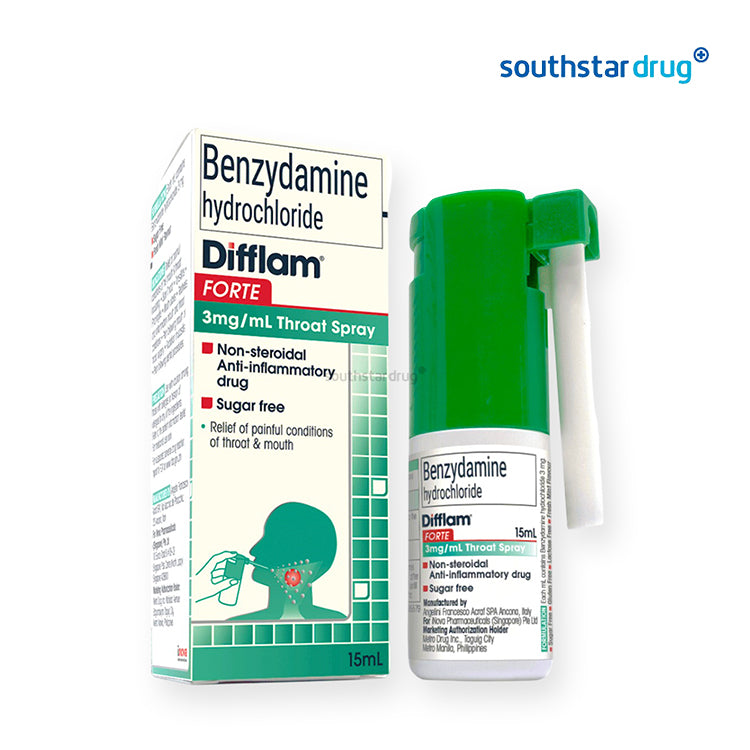Respiratory diseases are among the leading health concerns in the Philippines, affecting millions of Filipinos each year. This is exacerbated by the country’s tropical climate, high humidity, and frequent changes in weather, which create an environment where respiratory infections thrive. In urban areas, air pollution from vehicle emissions and industrial activities worsens air quality and boosts the risk of both acute and chronic lung conditions. Meanwhile, in rural communities, exposure to biomass fuels like firewood and charcoal poses additional threats to respiratory health. On top of these environmental factors, crowded living conditions, limited access to healthcare, and the prevalence of smoking further contribute to the high burden of respiratory diseases.
Awareness and timely intervention can facilitate more effective prevention and management for respiratory diseases. Whether they’re dealing with something as common as a seasonal flu or a more severe illness like tuberculosis, Filipinos need access to the right medications and medical supplies. Southstar Drug is committed to providing Filipinos with affordable healthcare solutions, offering not only prescription medication and over-the-counter treatments but also expert advice to help you make informed health decisions.
With that, let’s learn more about some of the most common respiratory illnesses affecting Filipinos today.
Acute Respiratory Infections
Acute respiratory infections (ARIs) are among the most widespread health issues in the Philippines. These infections affect the upper or lower respiratory tract and include conditions such as the common cold, flu, bronchitis, and pneumonia. Many ARIs are fortunately mild, but they can also escalate into severe illnesses, particularly for young children, the elderly, and individuals with compromised immune systems. In fact, pneumonia remains one of the primary causes of hospitalization and death among Filipino children under 5 years old. It’s also the third leading cause of death among people of all ages.
ARI prevention starts with practicing good hygiene, such as frequent handwashing and proper cough etiquette. Vaccinations, including flu and pneumonia shots, provide essential protection, especially for high-risk individuals. If symptoms persist or worsen, seeking medical attention early is key to preventing complications. Southstar Drug offers a wide range of cold and flu medications, as well as doctor-recommended vitamins and supplements, to help strengthen the immune system against infections.
Chronic Obstructive Pulmonary Disease
Unlike acute infections that come and go, chronic obstructive pulmonary disease (COPD) is a long-term condition that progressively damages the lungs. It generally results from prolonged exposure to lung irritants, with smoking being the biggest culprit.
Another unfortunate reality is that COPD is also an often-underdiagnosed health problem. Many people mistake its early symptoms—such as persistent coughing and shortness of breath—as normal effects of aging or minor respiratory issues. In many cases, lung damage is usually irreversible by the time COPD is eventually diagnosed. Early detection is the best way to avoid this worst-case scenario, so anyone experiencing persistent respiratory symptoms should seek medical advice.
While COPD has no cure, proper management can slow its progression and improve quality of life. That said, quitting smoking is the single most effective way to prevent further lung damage. Medications such as bronchodilators and corticosteroids can help ease breathing difficulties. Pulmonary rehabilitation, which includes breathing exercises and lifestyle adjustments, is also beneficial.
Tuberculosis
Tuberculosis (TB) is a bacterial infection that mainly affects the lungs, spreading through airborne droplets when an infected person coughs or sneezes. TB remains one of the biggest public health threats in the Philippines; in fact, the country has the fourth highest rate of TB incidence globally, according to data from University Research Co. (URC). Up to 1 million Filipinos are currently estimated to have active tuberculosis, and many more may also be carrying latent TB bacteria without even being aware of it.
Delayed diagnosis is one of the biggest challenges in TB control. Many Filipinos do not seek medical attention until the disease has progressed, often mistaking persistent coughing and weight loss for common ailments. Socioeconomic factors also play a role—poverty, malnutrition, and overcrowding all increase the risk of transmission in underserved communities.
Treatment for TB requires patients to adhere strictly to a months-long antibiotic regimen, commonly referred to as the directly observed treatment short-course (DOTS) program. Stopping medication too early or skipping doses can lead to drug-resistant TB, which is even more difficult and expensive to treat. Fortunately, the Philippine government provides free TB diagnosis and treatment through public hospitals and health centers. Early screening and proper treatment not only help affected individuals recover but also prevent the further spread of the disease within communities.
Asthma
Asthma is a chronic respiratory condition that affects millions of Filipinos. It occurs when the airways become inflamed and overly sensitive, which in turn leads to episodes of wheezing, breathlessness, chest tightness, and coughing. Some people experience only mild symptoms, while others suffer from severe asthma attacks that require emergency medical attention.
Asthma has a strong link to environmental and genetic factors. Triggers vary from person to person and may include dust mites, pet dander, pollen, cigarette smoke, air pollution, and even emotional stress. It has no permanent cure, but it can be well-controlled with the right approach. Inhalers, both for quick relief and long-term control, are essential tools for managing symptoms. It’s equally important for affected individuals to identify and avoid triggers. For example, using hypoallergenic bedding, maintaining clean indoor air, and avoiding exposure to smoke can help prevent flare-ups.
Lung Cancer
Lung cancer is the predominant cause of cancer-related deaths in the Philippines. Smoking is by far the primary risk factor, but other factors like occupational exposure to harmful substances (such as asbestos and industrial fumes) and air pollution also contribute to rising cases. Lifestyle changes centered on quitting smoking, reducing exposure to environmental pollutants, and improving air quality at home all form the foundation of an effective lung cancer prevention strategy.
One of the biggest dangers of lung cancer is that symptoms often appear too late. The disease often progresses silently in its early stages and may cause no noticeable discomfort. By the time symptoms like chronic coughing, unexplained weight loss, chest pain, and difficulty breathing develop, the cancer is often advanced. Early screening, especially for smokers and those with a family history of lung cancer, is potentially life-saving for this reason.
At the end of the day, the right knowledge and timely medical care are your best defense against respiratory diseases and other ailments. Take proactive steps today to avoid risk factors and seek early treatment, so you can better protect yourself and your loved ones. Southstar Drug is here to provide you with everything you need for better respiratory health, so don’t hesitate to visit us in-store or online.












